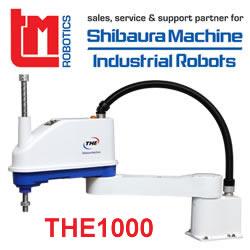Masters of the Universe: National school competition ignites children’s interest in space and robotics
A UK-wide competition invites children to design robots for space missions Launch at the National Space Centre lets schoolchildren try the competition app and explore careers in the industry
United Kingdom, 13th February 2020 - The online educational publisher Twinkl and the EPSRC UK Robotics & Autonomous Systems Network (UK-RAS Network), have joined forces to launch a national School Robot Competition and celebrated today with an out-of-this-world event.
The competition invites classes and school groups to design space exploration robots using a specially created application or online.
The launch fittingly took place beneath the 80ft-long Blue Streak Rocket at the National Space Centre in Leicester. A group of students aged 8 to 11 from nearby Mellor Community Primary School and Forest Lodge Academy were invited to meet robotics experts from the UK-RAS Network and try out the app, which was designed and created by Twinkl for the competition.
The annual competition is open to groups of pupils aged 8-14. Each group needs to create three virtual robots that can move across challenging space environments and complete a range of tasks. Schools can enter by downloading and creating an account through the augmented reality (AR) app, which is available from today (Thursday 13th February) on the Apple App Store and Google Play, or by using the web-based version. The competition will be accepting entries until midnight on Monday 8th May.
The launch was attended by partners of the competition, who come from a host of organisations, networks, and research programmes that specialise in artificial intelligence, robotics and space.
These included Brains-on-Board, Future AI and Robotics for Space (FAIR-SPACE) Hub, National Centre for Nuclear Robotics (NCNR), Robots and AI in Nuclear (RAIN) Research Hub, Pipebots and Consequential Robotics.
The partners involved will be judging the competition alongside UK-RAS and Twinkl by choosing the schools that have entered the best robots, based on a range of different criteria. The overall competition winner will receive a MiRo-E Robot from Consequential Robotics, an entertaining and emotionally engaging robot that responds to human interaction. There will also be a range of exciting and unique prizes up for grabs, which have been generously donated by event sponsors, including robot kits for students, robot laboratory tours, and Lego EV3 systems and educational support for schools.
Quotes and interviews available on request.
-ENDS -
About Twinkl:
Twinkl was founded in 2010 by husband and wife Jonathan and Susie Seaton, with a mission to ‘Help Those Who Teach'. The company provides high quality, online learning materials, which are all teacher-created and checked.
Twinkl offers over 625,000 resources, with new content added daily. This ranges from schemes of work and assessments to augmented reality games and much more.
Twinkl is used and trusted by schools and educators in over 196 countries, including primary and secondary school teachers, nursery workers and parents.
The company also works in partnership with a range of organisations to support its mission, including work with the National Children's Bureau and Tate, and is proud to be the Official Education Partner of BBC Children in Need.
Founded in Sheffield, Twinkl now has over 500 team members based around the world and offices in Sheffield, Manchester and Australia.
More information can be found at twinkl.co.uk
About the EPSRC UK-RAS Network (https://www.ukras.org/)
The EPSRC UK Robotics and Autonomous Systems (RAS) Network was established in March 2015 with the mission to provide academic leadership in RAS, expand collaboration with industry and integrate and coordinate activities at eight Engineering and Physical Sciences Research Council (EPSRC) funded RAS capital facilities, four Centres of Doctoral Training (CDTs) and with, currently, 30 partner universities across the UK.
In 2012 the UK Government identified RAS as one of the Eight Great Technologies that will play a significant role to improved international competitiveness, productivity and economic growth. The government allocated £25 million capital investment to establish eight RAS centres for excellence across the UK. These together with the Centres for Doctoral Training (CDTs) form the EPSRC UK-RAS Network, chaired by Professor Robert Richardson, Leeds University.
The Network brings together the UK's core academic capabilities in robotics innovation under national coordination and encourages academic and industry collaboration to accelerate the development and adoption of RAS. It has received strong support by major industrial partners, among them the Science Museum, Royal Academy of Engineering, the Institution of Engineering and Technology, the research institute of Remote Applications in Challenging Environments and the Institute of Mechanical Engineers. The Network is expanding to include broader stakeholders including key national laboratories and leading international collaborators.
The Network organises a wide range of activities including network and strategic roadmap events such as the UK Robotics Week, symposia, workshops, public engagement and exhibitions. It aims to strengthen the relationship with industry by supporting interdisciplinary mobility, secondments, developing proof-of-concept (PoC) projects and running design challenges. It has also a strong focus on government policy and high-level engagement with international stakeholders
For further information please contact:
PR contact for ESPRC UK-RAS Network Nicky Denovan EvokedSet PR nicky[at]evokedset[dot]com ++44 (0) 118 328 2782
Featured Product

TM Robotics - Shibaura Machine THE SCARA range
The THE range from Shibaura Machine is an extensive line up of SCARA robots. Available in four arm lengths THE400 (400mm), THE600 (600mm) and the most recent THE800 (800mm) and THE1000 (1000mm), this range is suitable for assembly, handling, inspection and pick and place processes in varied industrial applications. The THE1000 boasts a 20kg payload capacity and an impressive 0.44 second cycle time, providing high speeds for processes with large components. In fact, the range has been recognised for as the price-to-performance leader compared to other SCARA models in its price range due to its impressive speed versus payload capacity.
